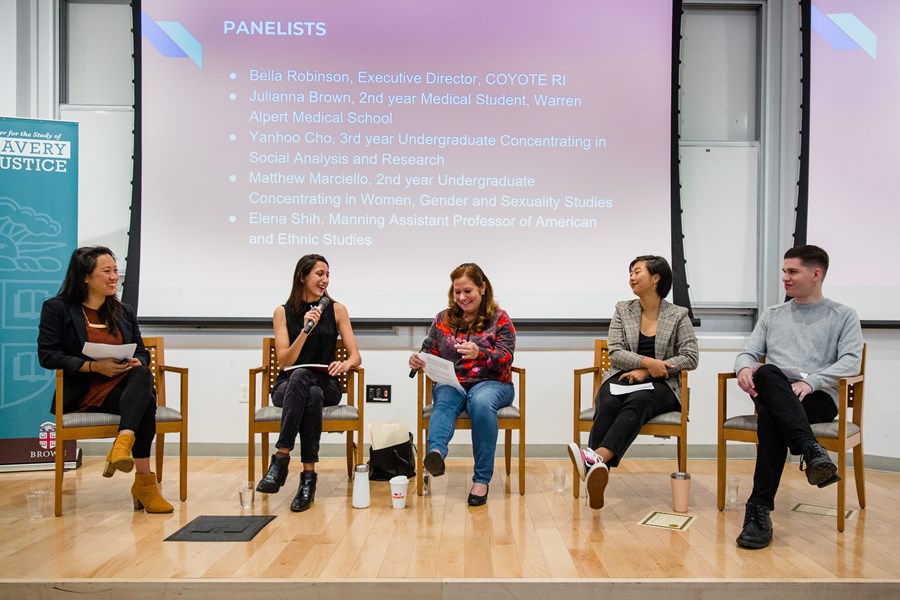
At the 2019 Family Weekend panel “10 Years After Re-Criminalization: Reflecting on a Decade of Anti-Trafficking Activism in RI,” Professor Shih continued: “At the same time, [the research cluster is] very cautious that the same racial hierarchies have the potential to inform rescue and helping initiatives. In other words, we interrogate the unintended consequences of trying to do good.”
For the last four years, Professor Shih has led a team of students and faculty in exploring contemporary forms of human bondage. The research cluster’s cutting edge work has been acknowledged and supported by international partners. Last academic year, Professor Shih was awarded funding as a Principle Investigator from the prestigious British Academy (BA) program, “Tackling Slavery, Human Trafficking and Child Labour in Modern Business.” The research project aims to understand the proliferation of technological solutions to stopping modern day slavery, including various cell phone apps that help migrant workers report abuse across the US, Asia, and Latin America.
The research cluster has also worked to develop a fruitful, ongoing partnership with COYOTE RI, Rhode Island’s only sex worker rights organization, a model example of what sustainable, engaged scholarship can look like between academic centers and community partners. “Our work with COYOTE puts sex workers and victims of trafficking’s expertise at the center of the questions and answers that we face,” noted Professor Shih. To Professor Shih, Rhode Island is an ideal place to study the intersection of human trafficking and sex work, as for a short period of time in the early 2000s, the state was one of two in the nation to decriminalize indoor prostitution. “I think it’s a really unique test case to understand how and why the anti-trafficking movement has continually turned to policing, surveillance, and sometimes seeking carceral options as opposed to seeking social welfare or justice responses.”
The partnership even resulted in the introduction of the historic Rhode Island House Bill 5354, entitled "Creating Special Legislative Commission to Study the Health and Safety Impact of Revising Commercial Sexual Activity Laws.” If passed, the bill would study the impact of the 2009 decriminalization of indoor prostitution in the state. Research cluster participants Dayana Tavarez ‘19, Malana Krongelb ‘19, Julianna Brown '18 MD '22, Meghan Peterson MPH '19, and Yanhoo Cho ‘21 each testified before the House Judiciary Committee in support of the legislation. Professor Shih shared that “It was a really proud day last year to travel up to the State House and testify and share the expertise we’ve gathered over the years.”